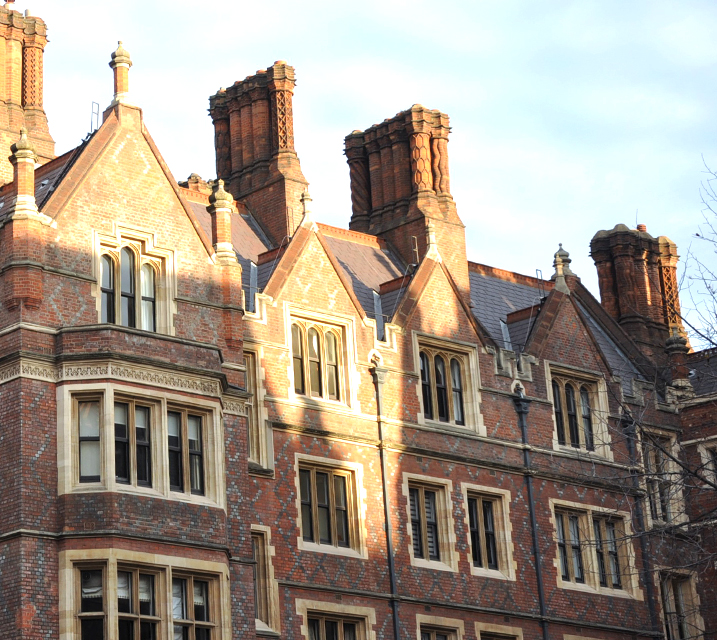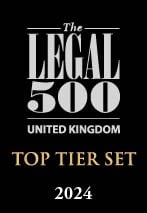Duncan Heath wins landmark Court of Appeal case on Right to Buy: Hackney LBC v Weintraub [2024] EWCA Civ 1561
When is a tenant still a tenant? Court of Appeal rules on Right to Buy
On 13 December 2024, the Court of Appeal handed down judgment on an important point of principle concerning the Right to Buy legislation. A tenant of council owned property who intends to return to living in the property as his only or principal home as an owner but not as a tenant retains his status as a secure tenant under section 81 of the Housing Act 1985 and, consequently, retains his right to buy his council owned home.
The decision is of interest not just because it is the first case to consider whether a tenant who intends to return as an owner may still satisfy section 81 but also because Males LJ commented that a tenant who has an ongoing daily connection with a council property and only sleeps elsewhere should still be considered to be using the council property as his principal home.
Prior to this case, the statute was clear that a secure tenant has a right to buy their council home and that a tenant is a secure tenant if they satisfy the tenant condition in section 81 of the Housing Act 1985, namely that they occupy the demised premises as their only or principal home. Case law also established that a tenant continues to ‘occupy’ for the purposes of section 81 if they are absent from the premises but have an intention to return to occupying the premises as their only or principal home.
The crucial question in this case was whether a tenant could satisfy the tenant condition if they did not intend to return to physical occupation as a tenant but only as an owner. The council considered that if there was no intention to return to the property with the status of a council tenant that the tenant condition could not be satisfied. In short, said the Council, how can the tenant condition be satisfied by an owner, rather than a tenant?
Rabbi Yisroel Weintraub is an octogenarian holocaust survivor. He resided in his council home with his wife until her death in 2008. By 2017, he had become fearful of sleeping in his council home at night and stayed most nights at his daughter’s house and occasionally with friends. A plan was agreed within his family that he would exercise his right to buy and then renovate the property to allow a grandchild to live independently with him in the property, thereby allowing him to return to sleeping at the property once he owned the property.
The Council originally admitted the Right to Buy application but, after inspecting the property, contended that the Rabbi was no longer using the property as his only or principal home.
During a three-day trial at first instance, factual evidence from a neighbour that the Rabbi was no longer using the property at all was rejected by the trial judge (HHJ Saunders, sitting in the Central London County Court). The trial judge accepted that the property was still a home for the Rabbi. He was there daily and only returned to his daughter’s house late at night to sleep.
However, the trial judge rejected the Rabbi’s case that he was still occupying his council flat as his only or principal home. Whilst the Judge accepted that the Rabbi would still be occupying the property as his only or principal home if he intended to return to physically occupying the property as his only or principal home, the Judge found that the Rabbi’s intention to return only as an owner was insufficient to satisfy the tenant condition in section 81.
Rabbi Weintraub appealed to the High Court on two grounds: (1) the trial judge had accepted that the council flat was still a home for the Rabbi and had not expressly found that he had any other home; accordingly, the flat remained his only home and (2) the trial judge was wrong to find that a tenant could not satisfy section 81 if they only intended to return as an owner.
On appeal, Mr Justice Zacaroli (as he then was) allowed the appeal, finding that an intention to return as owner was sufficient. Whilst Zacaroli J accepted the appellant’s logic that the trial judge had to find that the Rabbi had another home elsewhere in order to find that the flat was no longer his only home and that the judge had not obviously made an express finding to that effect, he held that the trial judge must have made a finding that the daughter’s home was the principal home.
The Council appealed to the Court of Appeal, contending that an intention to return as owner was insufficient to satisfy section 81.
The Court of Appeal dismissed the Council’s appeal. Giving the lead judgment, Lady Justice Aspinall (with whom Lord Justice Males and Lord Justice Birss agreed) held that the Rabbi’s intention to return to the property as an owner was sufficient to satisfy the tenant condition. He was still a secure tenant and still enjoyed the Right to Buy. The Council was ordered to sell the long leasehold of the flat to Rabbi Weintraub.
Accordingly, the Court of Appeal found that it was not necessary to decide whether the trial judge had made any finding that the daughter’s home was currently the principal home but, in any event, would have agreed with Zacaroli J that the trial judge had found as a fact that the daughter’s home had become the Rabbi’s principal home.
However, Lord Justice Males commented that, whilst the trial judge’s primary findings of fact in his judgment were clear, his conclusions were not. On the trial judge’s findings of fact, the proper conclusion was that the Rabbi’s council flat remained his home. Males LJ doubted that the daughter’s home had ever become the Rabbi’s home; it was merely a place where he slept when a bed was available for him. There was no doubt, on the facts, that the council flat remained his principal home.
Duncan was instructed by Fred Banning of Clarke Mairs.
The above note is available for download below as is a copy of the full Judgment

